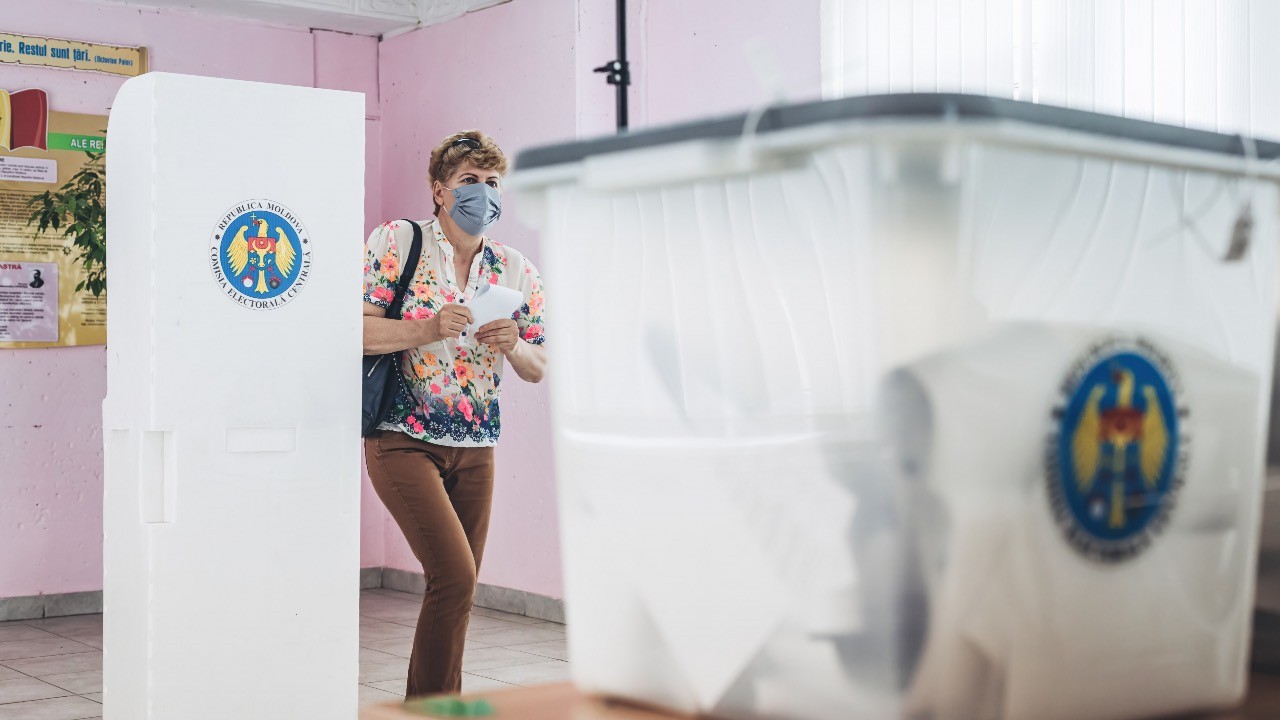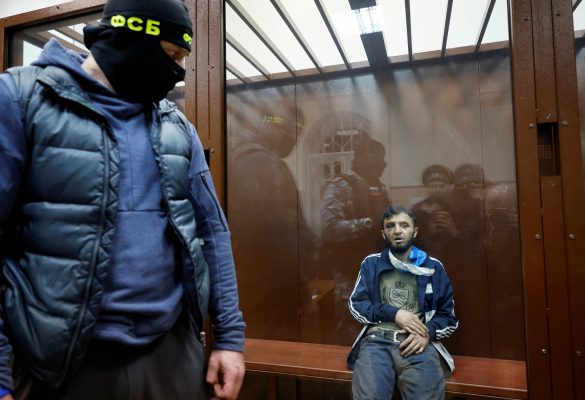The Anna Karenina principle states that a deficiency in any one factor dooms an endeavor to failure. Following that principle, every new European Union (EU) member state is succeeding in the same way, every state in the EU’s eastern neighborhood is failing in its own way. As of late, while we witnessed a crushed popular uprising in Belarus, a rekindled war between Armenia and Azerbaijan, Russian aggression in Ukraine, and large protests in Georgia. Moldova has seemed quasi-absent from international news. Now, finally, something positive has happened: The parliamentary election results have strongly reaffirmed the country‘s commitment to European integration and brought Moldova back into the spotlight.
While the resounding victory of Maia Sandu in the presidential elections of November 2020 brought hope for democratic transformation, it did not fundamentally change Moldova’s political situation. The governing Socialist-led political alliance had successfully halted both the reforms and Sandu’s presidential prerogative to dissolve parliament. Finally, she was able to call early elections in July. The results were an impressive popular endorsement — an almost 2:1 victory for her party, with the vote split 53%-27%.
Sandu’s political path is unusual. A Harvard-educated economist, she resigned in 2012 as an adviser to the executive director of the World Bank in Washington DC to return home, having been nominated as education minister in Vlad Filat’s government. In the following three years, she undertook unpopular but meaningful reforms, especially focusing on fighting corruption and promoting a more meritocratic system. Her image as a trustworthy and results-oriented person made her a symbol of transformation and brought new hope for Moldova’s hitherto oligarch-dominated politics. The wave of public support remained stable and eventually led to the foundation of her center-right Action and Solidarity Party (PAS) in 2016. Throughout her political career, including a short stint as prime minister in 2019, Sandu has shown a constant record of integrity, professionalism, and determination to fight corruption. Consequently, the PAS’ impressive election results can fairly be seen as a personal success, as well as an endorsement.
In total, 48.41% of the Moldovan electorate cast a vote. The PAS’s vote share won it 63 of the 101 parliamentary seats, while the Communist and Socialists Bloc led by former President Igor Dodon took 32 seats and the Shor Party of the fugitive oligarch, Ilan Shor, six seats. PAS’s overwhelming victory represents a historic change for Moldova, as both the executive and legislative power will be in the hands of the same pro-European democratic party.
PAS explicitly endorsed European integration as its strategic goal for Moldova and aims to use EU aid to finance structural reforms, with a focus on anti-corruption and the improvement of the quality and efficiency of the justice system. While this brings renewed hope for a stable, democratic, and pro-European Moldova, the political rhetoric is not new. The 2009 election generated a similar wave of optimism after Filat’s pro-European coalition came to power promising reforms and democracy-building, only for the promises to turn to ashes when its rule ended with the biggest theft in the history of post-communist Moldova: $1bn billion stolen from the state budget. The money, one-eighth of Moldova’s annual GDP, vanished overnight from three of the country’s leading banks. The state bailed the banks out – but the infamous robbery severely damaged both economic development and Moldova’s perilous path to EU membership. The robbery, allegedly orchestrated by Vladimir Plahotniuc, Ilan Shor, and others remains unsanctioned to this day and it will take a long time before any funds return to the Ministry of Finance and the National Bank of Moldova.
Governing is always more difficult than winning elections. Yet with its comfortable parliamentary majority, PAS has few excuses not to deliver the promised reforms, while the citizens of Moldova will judge the new government by the changes it achieves. Only then will the new administration will be able to rebuild trust in pro-European leaders. Sandu has also expressly prioritized her intention to organize a Russian-Moldovan summit to discuss the frozen conflict in Transnistria, which erupted in 1991, along with the withdrawal of Russian troops. It is a packed and challenging agenda.
It is worth noting that Sandu managed to maintain a clean political record despite her place in the Filat government. The true challenge now is to form an administration of experts and politicians with equal credibility. Furthermore, success in governance and maintaining public support – while necessary – is insufficient. PAS needs a plausible strategy to answer the most acute public needs: rehabilitating the healthcare and educational systems, improving socio-economic conditions, fighting corruption, and reversing the flow of mass emigration.
The Moldovan diaspora, whose remittances keep Moldova’s economy afloat, have shown overwhelming support for both Sandu and PAS in the last two elections. The incoming administration should center its best efforts on involving them in projects back home. The promised reform efforts are an important lever: if conditions are right, members of the diaspora could contribute much more by investing at home and bringing back best practices from abroad.
The real work to build a democratic, pro-European country has only just begun, and yet, despite all these challenges, Moldova has displayed a determination to confront its problems and persevere. Keep an eye on Moldova — it might surprise as one of the success stories of the EU’s eastern neighborhood.




